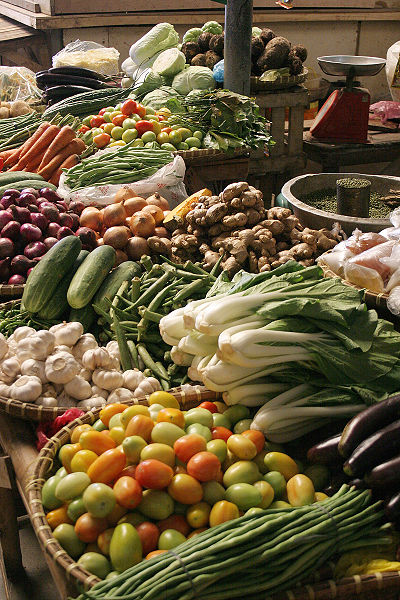Food and Generosity

Credit: Jasper Greek Golangco
| Giver: | - |
|---|---|
| Receiver: | Individual or unstructured/informal group |
| Gift: | Other |
| Approach: | Reciprocal Gift |
| Issues: | 10. Reduced Inequalities, 11. Sustainable Cities and Communities, 2. Zero Hunger, 3. Good Health and Well-Being |
| Included in: | Food and Generosity |
Food is both a necessity and a gift. In addition to enabling people to lead healthy and productive lives, food serves as the focal point of celebrations, religious rites and social gatherings. The sharing of food represents a fundamental act of generosity, one that is common to all societies and cultures. As Sidney Mintz and Christine Du Bois write in “The Anthropology of Food and Eating”: “Next to breathing, eating is perhaps the most essential of all human activities, and one with which much of social life is entwined.”
Food has held a central place in communal life since antiquity. Throughout history, communities have organized feasts to celebrate marriages or the completion of important tasks, mourn the deceased, express gratitude for bountiful harvests and pay homage to gods and ancestors. The practices surrounding the preparation and serving of food typically follow customs unique to a particular cultural, religious or ethnic group. Through the performance of these rituals, members of a society acknowledge and affirm their shared heritage, while strengthening bonds of community and kinship.
Conversely, lack of adequate food can have a devastating impact on society. Throughout history, food insecurity has posed a significant threat to human prosperity and political stability. Economic factors – such as income inequality, unemployment and inflation – can make it difficult for marginalized groups to get the food they need to survive. War, natural disaster and climate change can disrupt or even destroy food production and distribution networks, plunging entire populations into famine. Food insecurity can lead to conflict, crime and other forms of societal breakdown. Lack of proper nourishment also leads to illness and disease, placing enormous strain on healthcare systems.
For these reasons, the issue of food propels many philanthropic and charitable endeavors. Promoting food security, nutrition and sustainable agriculture lie at the heart of the “Zero Hunger” initiative in the United Nations Sustainable Development Goals (SDGs). Many anti-hunger programs focus on food distribution, while others focus on systemic changes in order to make healthy, nutritious food available and affordable. Some organizations – notably World Central Kitchen (WCK) – seek to reinforce the connection between food and culture, making native cuisines the focal point of their relief efforts, while encouraging local people to become involved in the process of feeding themselves.
The act of gathering around a meal represents one of the simplest, most gratifying ways of celebrating our common humanity. By recognizing food as a universal human right, philanthropy can strive to ensure that all people, regardless of circumstance, can participate in this vital, joyous and life-giving ritual.
Contributor: Stephen Meyer
| Source type | Full citation | Link (DOI or URL) |
|---|---|---|
| Book |
Lambie-Mumford, Hannah, and Tiina Silvasti, editors. The Rise of Food Charity in Europe. Bristol, UK: Policy Press, 2020. |
9781447340003 |
| Book |
Malamidēs, Charēs. “The Social Movement Scene of Food.” In Social Movements and Solidarity Structures in Crisis-Ridden Greece, 107-60. Amsterdam: University of Amsterdam Press, 2020. |
9789463722438 |
| Publication |
Mintz, Sidney W., and Christine M. Du Bois. “The Anthropology of Food and Eating.” Annual Review of Anthropology 31 (2002): 99-119. |
https://www.jstor.org/stable/4132873 |
| Publication |
Morvaridi, Behrooz. “Capitalist Philanthropy and the New Green Revolution for Food Security.” International Journal of Sociology of Agriculture and Food 19, no. 2 (2012): 243-56. |
https://doi.org/10.48416/ijsaf.v19i2.228 |
| Book |
Riches, Graham. Food Bank Nations: Poverty, Corporate Charity and the Right to Food. London: Routledge, 2018. |
9781138739758 |
| Publication |
Schuman, Amy. “Food Gifts: Ritual Exchange and the Production of Excess Meaning.” Journal of American Folklore 113, no. 450 (Autumn 2000): 495-508. |
https://doi.org/10.2307/542044 |
| Publication |
Zahariadis, Nikolaos, Rick Travis, and James B. Ward. “U.S. Food Aid to Sub-Saharan Africa: Politics or Philanthropy?” Social Science Quarterly 81, no. 2 (June 2000): 663-76. |
https://www.jstor.org/stable/42863982 |